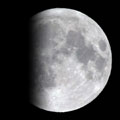Sea Bass Fishing
To Be Closed in Federal Waters
To Be Closed in Federal Waters
From an e-mail from Tom Fote from the Jersey Coast Anglers Association on September 30:
We were afraid that NMFS would close federal waters for black sea bass and that is what they did. The MAFMC Council and NMFS refused to ask the SSC to have a conference call with the Monitoring Committee to increase the quota for next year. I wrote about this in last month's JCAA Newspaper which is archived at the JCAA Web Page. Call your Federal congressman and senators and let them know how upset you are.
NOAA to Close
Recreational Fishery for Black Sea Bass
For Six Months Due to Overharvest
September 30, 2009
NOAA announced today the temporary closure of the black sea bass recreational fishery in federal waters north of Cape Hatteras, N.C., for 180 days in response to recent landings data that showed recreational fishermen may catch more than double their annual quota by the end of the year. The closure will commence Monday, October 5, 2009.
Landings data and scientific analyses show recreational fishermen have reached their quota and could exceed their 1.14 million pound harvest limit by as much as 84 to 225 percent if the recreational fishery is not closed.
An independent body of federal and university scientists recently determined that the black sea bass stock has been rebuilt. However, both the scientists and the Science and Statistical Committee of the Mid-Atlantic Fishery Management Council have cautioned against increasing fishing of this stock for several reasons, including the complex and poorly understood reproductive cycle, and limited information on life span and important habitats for this species. The Council recommends catch limits for black sea bass in federal waters.
NOAA understands and predicts changes in the Earth's environment, from the depths of the ocean to the surface of the sun, and conserves and manages our coastal and marine resources.





